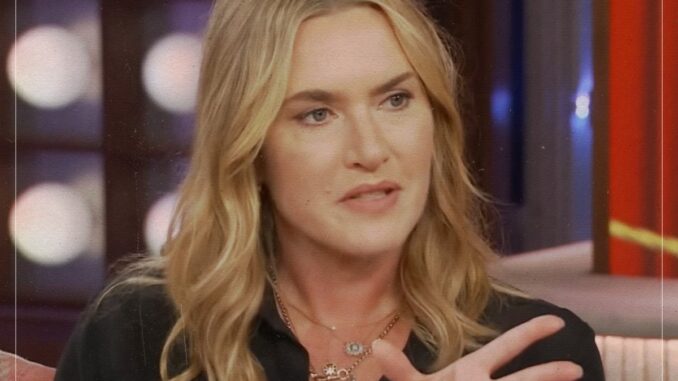
The name Kate Winslet evokes images of strength, grace, and an enduring spirit, often through roles that see her navigate immense peril, from the sinking deck of the Titanic to the unforgiving peaks of a frozen mountain. Yet, beneath the veneer of the intrepid actress lies a raw human vulnerability, a truth laid bare not by a film set, but by a terrifying real-life ordeal that left her truly fearing for her life, stripped of all cinematic illusion. This was the night a luxury island paradise transformed into an inferno, and Winslet found herself in the terrifying maw of an elemental nightmare.
The setting was idyllic: Richard Branson’s Necker Island, a private slice of Caribbean heaven. Winslet was there with her children and then-partner, enjoying a family vacation, a brief respite from the demanding glare of Hollywood. The night of August 22, 2011, began like any other, lulled by the sounds of the ocean and the gentle caress of a tropical breeze. But as the evening progressed, the weather turned, a storm brewing on the horizon, its approach heralded by the distant rumble of thunder. Little did they know, this storm carried a destructive power that would shatter their tranquility.
The shift from peaceful slumber to frantic terror was instantaneous and brutal. A lightning bolt, a primordial crack that tore the night in two, struck the Great House where they were sleeping. Winslet later described the sound as akin to an explosion, a sound that instantly ignited the roof and sent fire roaring through the wooden structure. The immediate aftermath was a chaos of searing heat, choking smoke, and the terrifying realization that the building was rapidly becoming an inferno. This wasn't a movie set with controlled flames and a stunt team; this was real, unscripted, and deadly.
In that heart-stopping moment, the actress melted away, replaced by the primal instinct of a mother. Her paramount fear was not for herself, but for her children. Amidst the swirling smoke and the crackle of hungry flames, Winslet sprang into action, rousing her daughter Mia and son Joe, grabbing whatever she could, her mind racing with a singular, desperate goal: get them out. The air grew thick with acrid smoke, making every breath a struggle, every step an act of blind faith through the encroaching darkness and the relentless roar of the fire. The heat became an oppressive blanket, singeing the air around them.
The terror was visceral. She described literally having to carry Mia, then 10, and Joe, then 7, through the burning house, the floorboards hot beneath their feet, the very structure groaning and splintering around them. It was a terrifying gauntlet through a waking nightmare. As they emerged into the relative safety of the outside, the storm still raged, rain sizzling on the molten debris, but the true horror was the sight of the Great House consumed by fire, a raging beacon of destruction against the dark sky. The magnitude of their escape, the sheer luck of it, washed over her in a cold wave of shock. It was in that moment, seeing the ravenous flames devour what was moments ago their shelter, that the profound, undeniable fear for her life and the lives of her children truly solidified.
The experience, though mercifully brief in its active terror, left an indelible mark. Winslet emerged a hero, famously helping to carry Richard Branson's 90-year-old mother to safety. But the memory of that night, the smell of smoke, the sound of the crackling fire, the visceral terror of protecting her children, lingered long after the ashes cooled. It was a stark reminder of life's fragility, a moment that stripped away all artifice and revealed the raw, unadorned fight for survival.
Kate Winslet has faced countless simulated dangers in her career, but the Necker Island fire was the true crucible. It was the terrifying experience that moved beyond the script, beyond the camera, and into the very core of her being, leaving her with a profound appreciation for life and an enduring understanding of the thin veil that often separates the ordinary from the truly terrifying. It was the moment the actress became the survivor, and the experience left an imprint far deeper than any role ever could.